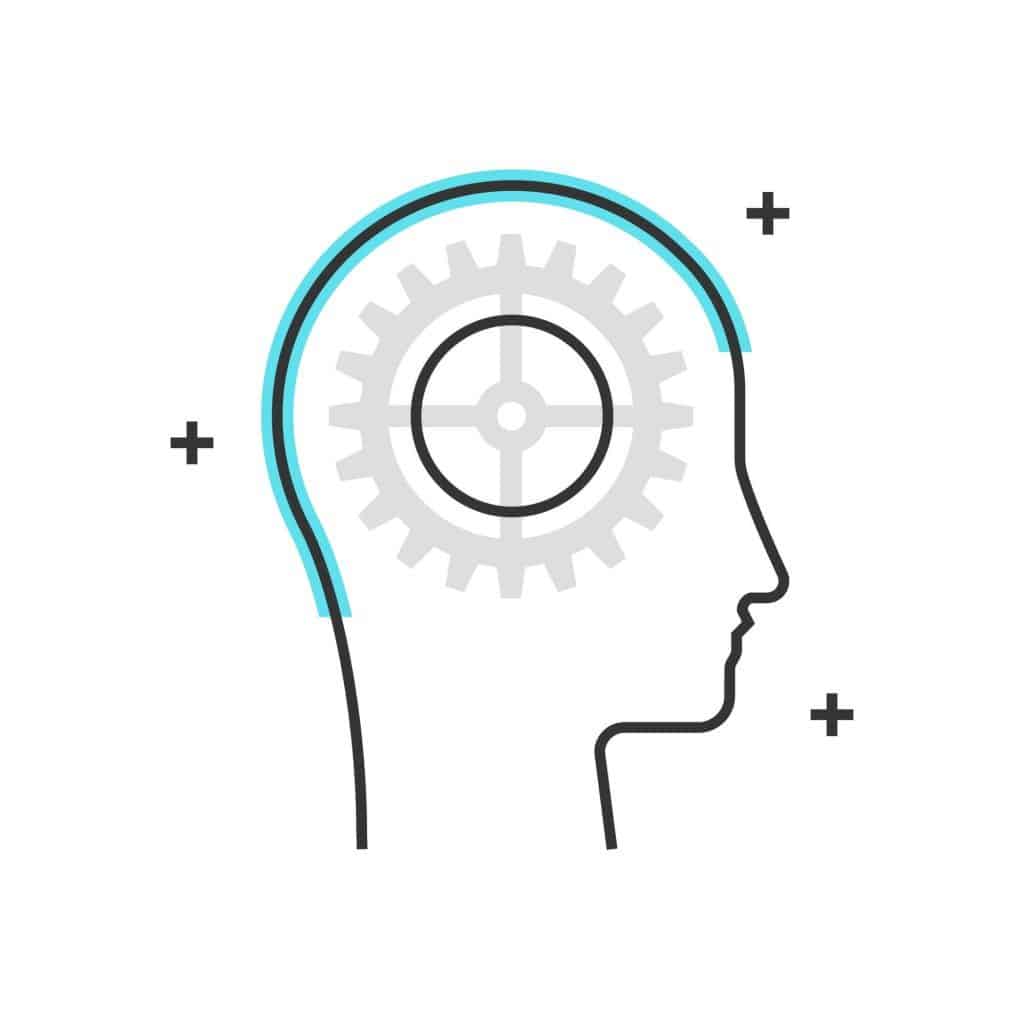Going to bed is a relief. After a hard day of work, you finally get the chance to relax. We can all agree that a good night’s sleep is the key to good health, and according to studies, a lack of sleep increases the chance of getting diseases like diabetes, and has bad effects on our memory.
Still, there can be days when you are feeling somewhat productive and sleeping just interrupts your flow.
But can you imagine a middle way, which would enable you to be more productive, yet still rested, by allowing you to get certain things done in your dreams? I mean, you have to sleep anyway, so why not try to embrace it?
The solution is called lucid dreaming.
The term “lucid dream” refers to an experience in which the dreaming individual is fully aware of the fact that they are not in the real world. Many times, they are able to do anything they can imagine, as opposed to “normal” dreams, which we could describe as movies we can’t control.
Why should a programmer care about learning lucid dreaming?
Lucid dreaming can benefit you in several ways. Especially for programmers, there is value in “accessing” new areas of your mind in ways that will greatly increase your quality of life and work. Here are some of my favorite benefits:
1. Counteract your recurring nightmares
Many people, including coders, suffer from recurring nightmares. For most sufferers, lucid dreaming could be a good solution to the problem.
Remember that we dream for a reason. Dreams are like a mail carrier who will keep knocking on your door to give you a package until you finally receive it. If they fail, they either hand it to your neighbors or come back later. Dreams can similarly keep plaguing us until we get the message.
One of the most common nightmares is being chased by someone. Because most people, including me, experience everyday dreams as movies over which we have little to no control, it’s easy to keep running forward without encountering the real problem.
What if you could just turn around to see who is chasing you? Who knows, it might be a dog, a cat, a human, or a fantasy creature. By doing so, you have a good chance of stopping a recurring nightmare, because you are eliminating the root cause of it, which in many cases is the fear you just managed to overcome.
2. Fight anxiety
From what I have seen, the majority of programmers are introverts. Sitting at our desks and typing some characters into an editor that nobody involved in the field could understand is what we like to do.
Talking to people confidently on a regular basis might not be our strength. And in most cases, it is not something we practiced too much. This fear, if you ask me, comes from being afraid of the consequences of conversations: “What should I do if x reacts with y, and z comes into play, just because I said this particular thing?” Or from not knowing what to talk about.
Besides reading “How to Win Friends & Influence People,” how about practicing everyday conversations in your lucid dreams? I mean, what could happen if you were totally wrong or did not know what you could talk about?
How about yelling at people you do not like or wearing your favorite costume from the carnival all day long?
Using lucid dreaming to try out activities like these could boost your confidence by allowing your subconscious mind to express itself in an extroverted way.
As this article explains, our subconscious mind doesn’t know the difference between dreams and reality, so we can use lucid dreaming to reprogram our fears.
3. Have fun
Putting all the productivity benefits to the side for now, let us not forget about the fact that lucid dreaming is fun! Would you not love to fly around in the air under your own steam, program with four hands, or talk to John? (I guess I just came up with an idea for my next lucid dream …)
The possibilities are endless. Think about anything you would like to do, and I guarantee you it is possible once you take control of your dreaming. I even read that a guy managed to drink a hot-cold drink … Obviously, throughout these experiences, distortion of reality can and will happen. Personally, I managed to fly in a lucid dream, but for some reason I just can’t manage to get it working in the real world …
The examples above are some of the most common reasons why people might want to learn lucid dreaming. I am sure you’ll be able to find more or even come up with your own.
Hopefully, you are as inspired and curious as I was when I found out about it. You might even be asking yourself how to actually learn it.
Like many difficult things in life, lucid dreaming is something you can learn, but it takes time. Although one study shows that 75 percent of participants were able to have a lucid dream in their first nine weeks of practicing, you are not going to master it within a short time period. Similar to almost anything you want to learn, it takes practice and dedication. And consistency in the learning process is important. But what I can tell you from my experience with it is that the rewards are big.
How can I use lucid dreaming to make myself more productive?
1. Find a solution to a tricky problem
As programmers, we are using our analytical thinking non-stop. Trying to come up with a suitable solution for a given problem can be quite a challenge at times. It’s not a good feeling to have to go to sleep while you are trying to find out what triggered an exception. Or even worse, if you cannot manage to come up with an appropriate algorithm. Did you know that lucid dreaming can help you solve those issues?
While we are having a lucid dream, our minds are more active than usual. Your subconscious mind knows when you are feeling uncomfortable about a tricky bug while going to sleep. It tries to figure out a solution. Lucid dreams can help you guide your mind in the right direction, because you are in control of your thoughts, and so can think about a possible solution within whatever hyper-realistic, creative environment you choose to be in.
2. Practice Patterns
Programmers should be playing sports to balance the issues we face from sitting for a long time. Jogging, swimming, or soccer are some examples. Let’s say that you love playing tennis in your free time, but you cannot manage to get the perfect swing working. The thing is, your mind knows how it works, but your subconscious does not.
But it needs to. Because when we are playing reactive sports, our subconscious is usually the one handling the actions for us. You can think of it as “programming” ourselves to do what we want.
The good news is that you can program your mind in your dreams. It is just a matter of practicing during your next lucid dream experience. The practicing part itself is no different from the practice you would do in the real world. In doing so, you should experience an improvement in your real life as well.
3. Seek inspiration for projects
Our minds are creative. We all know it. But still, many programmers, including me, find it difficult to come up with good ideas for projects. It seems as if we have too many constraints in our real world and everything has already been created by someone else on this planet.
Luckily, your dreams can be as creative as you want them to be. Picture yourself in a fantasy world and see what you can come up with. As a consequence, your mind activity will increase, and you might find yourself thinking about creative future projects.
Check out these examples of people coming up with their ideas inside of a dream.
How can you learn it?
The steps described below are a basic overview of what is required to learn lucid dreaming. You should follow all of them simultaneously to achieve the best results.
1. Create a dream diary
Having a lucid dream without remembering it the next day when you wake up is not really what you want—the main reason why you should write a dream diary. Also, this might make your lucid dreams feel more intense, as you are training your mind to remember all the details in them.
Every morning, as soon as you wake up, grab a notebook or your favorite writing app, write down the date, and write a short paragraph or some notes about everything you can remember from your dream. The more details you recall, the better. Right before you go to sleep, read the notes you took in the morning. Since I’ve been doing this, I find myself remembering way more dreams than before, which is exactly what we want to accomplish with this exercise.
2. Take reality checks
This step is all about training your critical thinking to ask, “Am I actually in the real world right now or just in a dream?”
The most common approach is to take what are called reality checks. The idea of reality checks is to do them in the real world for long enough that your mind will automatically start doing them in a dream. For example, you can count the fingers on your left hand, look away for a second, and then count them again. Then ask yourself if it is possible that you have X amount of fingers in the real world. Most commonly, you will answer it with yes.
The key thing with reality checks is to make them a habit. You have to repeat them often enough in your everyday life that your mind will automatically continue to do reality checks in your dreams. I recommend using a timer if you can’t remember to do them, and spacing them out throughout the day at whatever interval fits you the best. They will not surprise you in the real world, but they will in a dream. If you manage to make it a habit, and you automatically count your fingers in a dream, it is possible that you will find yourself having only four fingers, or perhaps even six.
From that point on, your mind realizes that you are not in the real world and your dream just became lucid. For example, if you have been counting your fingers as a reality check, looking away, and then counting them again, it is quite possible that there will be one more finger than before as soon as your body starts doing such a check automatically inside of your dream. This is exactly what makes you conscious and alert.
There are other reality checks, like looking at the clock, or covering your nose with your fingers and trying to breathe. You should be able to find many more online.
3. Care about the topic
What I can say from my experience is that the more I became interested in the topic of lucid dreaming, the more I was dreaming in general, and therefore the greater my chances of having a lucid dream.
Dealing with the topic by reading about it in forums or in books, or even just thinking about it will tell your mind that it is important to you.
4. Believe that it works
If you think this is all gibberish and is not going to work anyway, and the only thing you want to do is prove to the world that it does not, then chances are you have already achieved your goal.
Like with almost anything you want to learn, going in with the right attitude is key to seeing results.
This is basically the standard approach to learning lucid dreaming, but every human being is a unique individual. For one individual, it may take one month, for somebody else, it may take only a week, and the next person may never have a lucid dream, despite trying for over a year.
As an example, here is what a practical routine to increase your chances of experiencing a lucid dream could look like:
- Space out 10 reality checks throughout the day
- Read some articles on blogs or forums about the topic
- Go to bed with a good mindset and the belief that it will work
- Write down everything you can remember from your dreams in your dream diary
I would recommend reading more on the learning process itself. Here are some sources for doing so:
http://www.world-of-lucid-dreaming.com/how-to-have-your-first-lucid-dream.html
http://www.world-of-lucid-dreaming.com/
Although the amount of time it takes to learn lucid dreaming can vary from person to person, what I can say is that I have not heard anybody complain about not having a lucid dream, if they follow the steps described above for a long period of time.
Is it dangerous?
Forums are full of people telling you that if you die in a lucid dream, there is a chance of dying in the real world as well.
One question for you: have you ever experienced a dream where you were just falling down into endlessness—did you find yourself not waking up from it? Lucid dreams are just like normal dreams, with the twist that you are aware of the fact that you are dreaming.
Scientific tests on lucid dreams have been conducted for many years now, and no case has shown any real sign of danger, be it psychological or physiological. You can read more on the main concerns about lucid dreams here.
On the other hand, researchers have been able to find many benefits, like raised awareness, more confidence, better mental health, and people being more awake throughout the day.
If you find yourself having bad psychological problems, for example, deep depression or schizophrenia, see a doctor and tell them about your plan to learn lucid dreaming.
Remember, safety first.
Final Words
Thanks for reading this introduction to lucid dreaming. If you find yourself interested in the topic, I recommend browsing online to learn more about it. Here are some final takeaways and tips from this article:
- Everybody has the ability to learn lucid dreaming
- Lucid dreams can benefit you in several aspects of your life—it is up to you to pick out the most rewarding ones for you
- Lucid dreaming is fun, but it can also help you boost your productivity
- You have to keep practicing on a daily basis if you want to learn it
- The amount of time it takes can vary
- To keep yourself motivated, imagine what this could bring to your life
There are many websites dedicated to different experiences and techniques. Remember, everything you do with this information is your responsibility. And remember to take care when taking advice from people in forums.
By the way: I recommend staying away from techniques promising you a lucid dream within one day, as they generally require you to wake up in the middle of the night and go to sleep again, which could end up making you tired.
Have an awesome day. :)




